How one restive village in the communally sensitive Moradabad is showing the way by banning loudspeakers
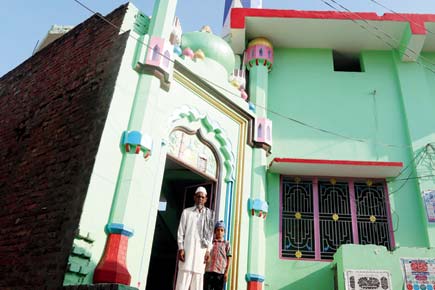
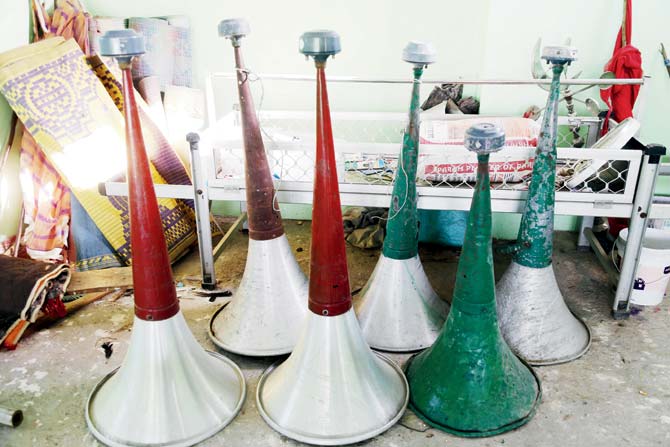
The only mosque (right) in Thiriyadan village has taken down its six loudspeakers after the villagers unanimously decided to ban them. Pics/Imran Khan
ADVERTISEMENT
Somewhere around the time when singer Sonu Nigam ruffled feathers for his controversial tweet against the use of loudspeakers for 'azaan', a village in Uttar Pradesh was battling a similar wave of discontentment. But unlike Nigam, who used Twitter to register his complaint and challenged Muslim clerics by shaving his head, Thiriyadan village in the Moradabad district of Uttar Pradesh, was buying time to end the simmering communal tension triggered by loudspeakers inside mosques and temples.
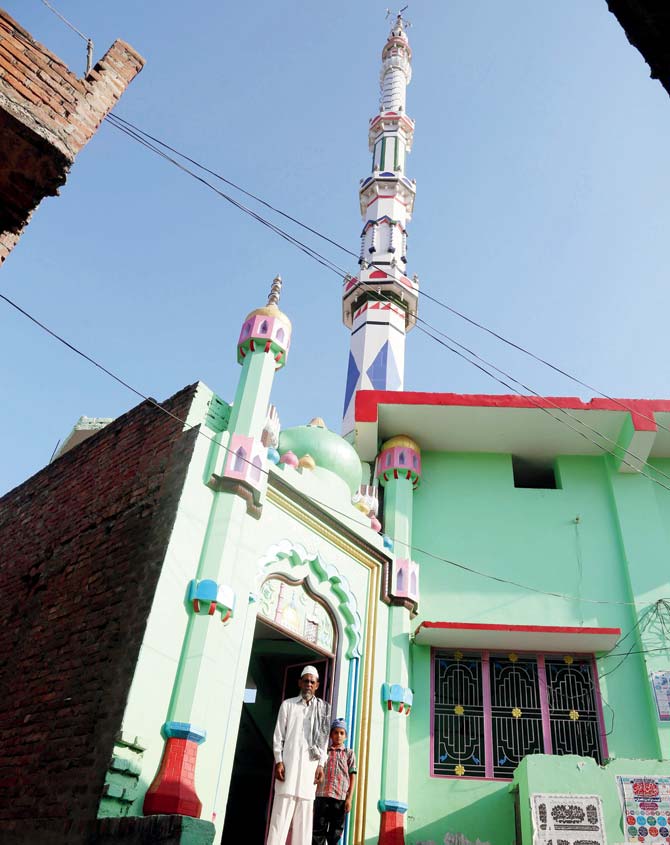
Last week, for the first time in Thiriyadan's history, the unthinkable happened - villagers collectively decided to ban loudspeakers that were freely used in its places of worship For the villagers, the step was a small attempt at restoring peace and communal amity, making Thiriyadan a shining example in a district that has been marred by communal clashes for decades.
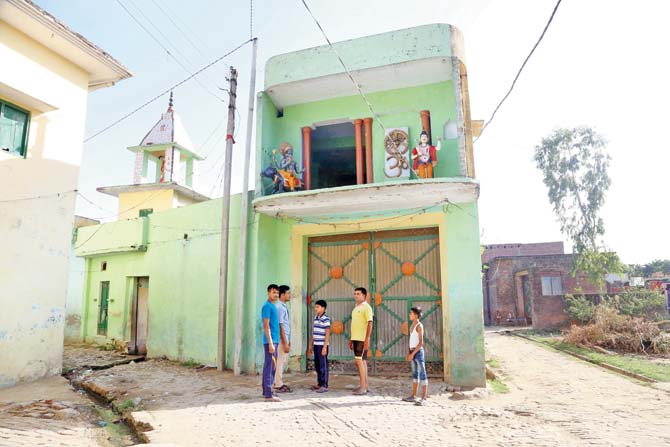
The village has two temples, which used to play bhajans through the night, disturbing members of the Muslim community
For the sake of peace
Situated around 175 km from Delhi, the district of Moradabad has witnessed several bloody clashes between the Hindus and Muslims. Back in 2014, many police officials and bureaucrats were injured after clashes broke out in Moradabad's Akbarpur village over the installation of a loudspeaker inside a temple. The neighbouring Thiriyadan village, which is located 25 km from Moradabad city, is no stranger to skirmishes either. With 70 per cent of its 2,000-odd population comprising Hindus and the remaining Muslims, fights over which community used its speakers the loudest, has always been the bone of contention. The tension is aggravated during festivals or the month of Ramzan.
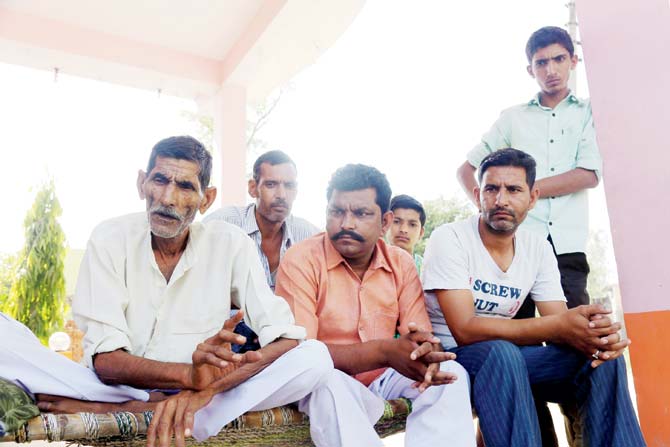
Suraj Singh (74, left), says the villagers decided to ban speakers because they wanted their children to live freely
Not surprisingly, on May 28, just two days after Ramzan began, the local police intelligence received a tip-off about a possible communal flare-up. Some of the villagers were allegedly upset about loudspeakers being played inside a mosque while they were sleeping. "Based on the report, we immediately called for a panchayat meeting on May 30," said Keshav Kumar Tiwari, station house officer, Bhagatpur police station.
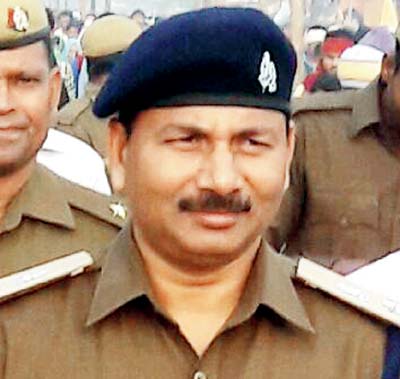
Uday Shankar, superintendent of police (rural), Moradabad
In the past, several Muslim residents had also complained about bhajans deliberately being played through the night. "We decided to try and convince the villagers to remove the speakers to avoid a chance of violence in future. Surprisingly, they all agreed," Tiwari said.
The decision was unanimously taken by 100 villagers, representing both communities. "We want peace. Our children should be able to live freely without fear in their hearts. You do not need speakers to spread the message of god," said Suraj Singh, 74, a village resident.
Uday Shankar, superintendent of police (rural), Moradabad, described the move as a "brave effort" on the part of both communities to ensure peace and harmony. "The police and district administration of Moradabad are full of praise for the initiative taken by the residents of Thiriyadan village," he said.
He added, "After the month of Ramzan, we plan to hold similar meetings in other communally sensitive villages and use Moradabad as an example for others to follow."
'We don't need no loudspeakers'
In the past, Thiriyadan village has been a hotbed of communal violence. "Last February, during the Kanwar Yatra [annual pilgrimage of devotees of Shiva to Haridwar], a few Muslim youth from the village were booked for attacking a Dalit youth from the village. Recently, police cases were filed against members of both the communities over a minor clash and some even landed in jail," said Sumit Choudhary (25), a resident of the village and teacher at the Madarsa Board. Choudhary admitted that the 'loudspeakers' were the reason behind the violence.
The village has three religious places of worship, two temples and one mosque. The main temple was constructed in 1965. "The mosque was built four or five years after that," said Ram Bharose Sharma (60), a priest of the village temple. The second temple was built around 10 years ago to keep up with the growing Hindu population.
But, while two temples in the village had two loudspeakers each, the mosque had six speakers. In the past, the villagers have had meetings to keep a check on the number of speakers at the temples and mosque. "When we first began the talks, we decided to have only two loudspeakers. But, later we realised that the numbers had nothing to do with the noise," said Syed Faisal Miyan, former village pradhan. When the police called for a meeting in May and spelled out the problem, the villagers agreed without any hesitation, said Miyan, who was part of the decision-making group.
"Earlier, we [Muslims and Hindus] wouldn't look at each other, but, now, conversations are everyday. The move has worked in everybody's favour," said Choudhary.
Now that peace has been restored, villagers hope that the police lift the cases against them. "Many of us have been framed in different cases of communal clashes. Most of us are poor and cannot fight in court. We hope the police will wrap up these cases soon," said Shaukeen (45), a construction labourer
What the villagers of Thiriyadan don't know is that their decision has spurred nearby villages to course-correct. "A few days ago, Hindu residents of Jignia village in Mirzapur district agreed to remove loudspeakers from Chamunda temple, which is surrounded by Muslim residents. They said they will only install it after the residents give their nod," said Superintendent Shankar. He is hoping this is the start of something wonderful.
 Subscribe today by clicking the link and stay updated with the latest news!" Click here!
Subscribe today by clicking the link and stay updated with the latest news!" Click here!






